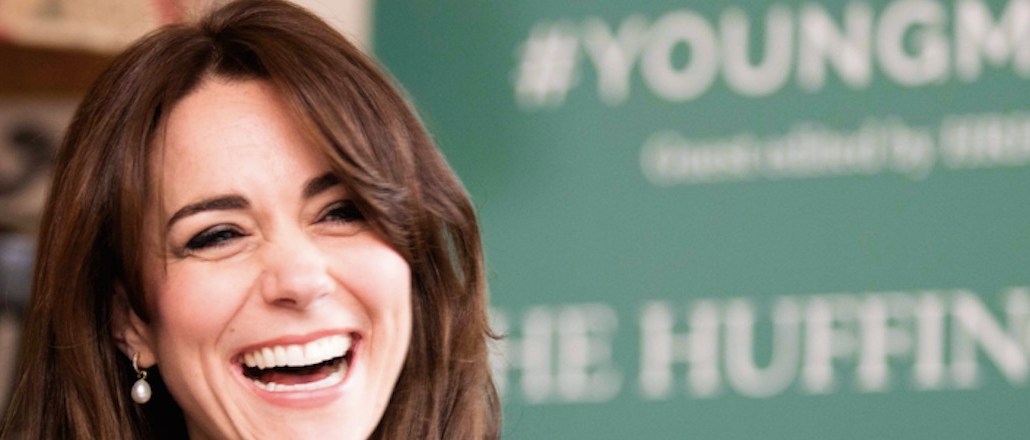Secure your place at the Digiday Media Buying Summit in Nashville, March 2-4
Kate Middleton steps in to Huff Post editor role to raise awareness for children’s mental health

Modern day newsrooms are a lot of things: Chaotic, noisy, intense and a little stressful. Not often do they take the form of crash pad. The Huffington Post swapped its daily digs Wednesday for the ornate wood panelled surroundings of Kensington Palace’s Wren Room, with its landlady — Duchess of Cambridge, Kate Middleton — in the editor’s chair.
The Huffington Post approached the duchess in the summer about guest editing the site for a day in which the editorial focus was entirely on children’s mental health.
“She’s one of the very few powerful young women who can lead a global conversation on this,” said Stephen Hull, editor-in-chief of The Huffington Post U.K, who joked he was worried for his job after having spent the morning overseeing the duchess.
It’s a cause that’s close to Middleton’s heart, having campaigned for mental health since 2011. She also acts as a patron to several related charities. For Huff Post’s “Young Minds Matter” project, she gave input into the content, commissioned pieces, including one from Michelle Obama, and enrolled charities for support. Pieces included “How art therapy is saving children with mental health issues” and Huff Post-commissioned reports stating “A third of parents fear they will look bad if their child has a mental health problem.”

#YoungMindsMatter has been trending on Twitter in the U.K. and the U.S., and has been mentioned nearly 11,000 times at time of writing, 96 percent of the time on Twitter, according to data from social media analytics firm Crimson Hexagon.
“The distribution element of what newsrooms do is so important now we don’t have newsagents or paper boys,” said Hull, who mentioned that Facebook and Twitter were the cornerstones to its distribution plans because of the audience size there. Globally on Facebook The Huffington Post has 6 million Likes and nearly 7 million followers on Twitter.
Not putting all of its eggs in one social media basket is a deliberate strategy at the Huff Post, said Hull. (Not a bad one either, considering that Facebook recently “accidentally” blocked the raunchy satirical British comic Viz from its site briefly before reinstating it recently.) In fact, data from analytics firm SimilarWeb shows that the publisher is relying less on Facebook referrals, when it comes to desktop traffic anyway. A comparison with January 2015 shows that the share of Huff Post desktop traffic to its U.K. site from Facebook has decreased by 30 percent from 739,000 to 517,000.
The Middleton project and the site’s focus on mental health in children both shines a light on a sensitive subject and also serves as a bit of service journalism: an amphasis of the project is to show how people can get help, and is borne out of Arianna Huffington’s wider good-news What’s Working initiative. “It felt like what we have been trying to achieve in the last four years really came together today,” said Hull.
The duchess is the first external person to edit the whole site, last year both Jameela Jamil and Livia Firth guest edited sections.
More in Media

From feeds to streets: How mega influencer Haley Baylee is diversifying beyond platform algorithms
Kalil is partnering with LinkNYC to take her social media content into the real world and the streets of NYC.

‘A brand trip’: How the creator economy showed up at this year’s Super Bowl
Super Bowl 2026 had more on-the-ground brand activations and creator participation than ever, showcasing how it’s become a massive IRL moment for the creator economy.

Media Briefing: Turning scraped content into paid assets — Amazon and Microsoft build AI marketplaces
Amazon plans an AI content marketplace to join Microsoft’s efforts and pay publishers — but it relies on AI com stop scraping for free.





